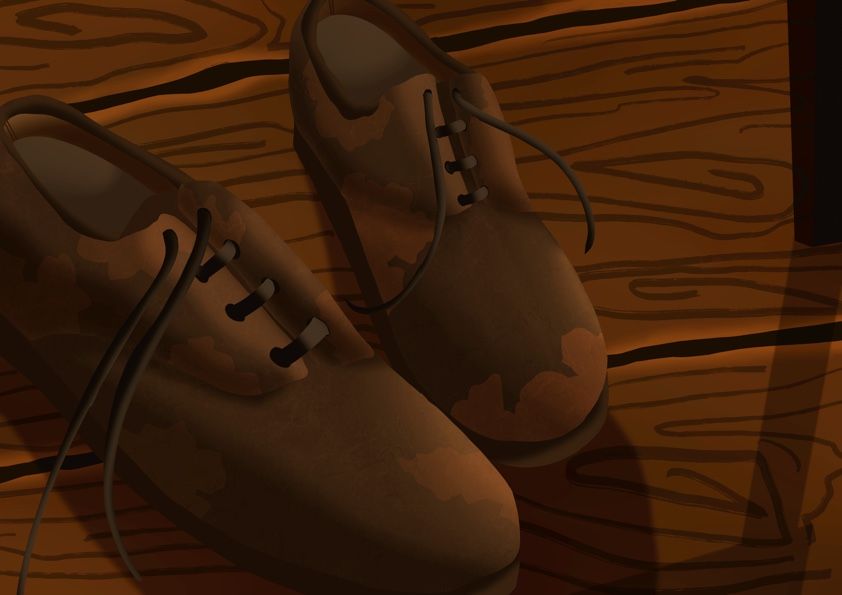As the Dan Ryan streaked south,
the air reeked from
coke ovens, oil refineries and
the wastewater lagoons of the corn-drying plants.
But after a long drive, Casey’s top 40 and some a.m. too,
I got to slide into my father’s lap and steer our car off the highway,
veering onto the off-ramp and all the way to my Grandma’s house.
I never worked the pedals, but the steering was all me.
It was always Sunday, and early, and my grandmother smoked camels,
covered her sofa cushions with vinyl,
and cooked gravy, meatballs, and oxtail soup.
There was a room with an exercise bike and a spare bed
that was filled with things that were my dead Grandpa’s.
A closet full of suits, shirts, ties and shoes that scared me.
Those shoes.
Worn, each pair worn down.
My Grandpa could’ve used a new pair for when his heart
imploded in his chest while he sat at work,
managing one of the coke plants that made it reek.
I bet that was the first thing someone saw,
his worn shoes out from under the desk.
Calumet City stank so bad that the windows at my Grandma’s were always shut.
“Steel stinks,” I’d say, to my dad,
but that’s how the people made their living,
so, it was easy for them to get used to.
And I admit, when we left each week, with CorningWare with the blue flowers on the side and heavy glass lids filled with the tastes and smells of Sicily,
I could hardly notice the smell.
Until the next week when we drove the highway.
Again.
And it would stink just the same.
When she was too old to live alone,
or when the drive became too much,
she moved closer.
Almost down the street.
This meant no offramp but no stink or scary closet either.
A fine trade, thinking, selfishly, for me.
At the new apartment, my grandmother, finally, could open her windows.
Funny, she quit smoking, then, and still made gravy but less meatballs and no soup.
When she moved, she gave my grandpa’s things away,
but it still smelled funny in there,
as if she couldn’t escape the stench, no matter what she did.
That fact, I imagine, it was the truth.

